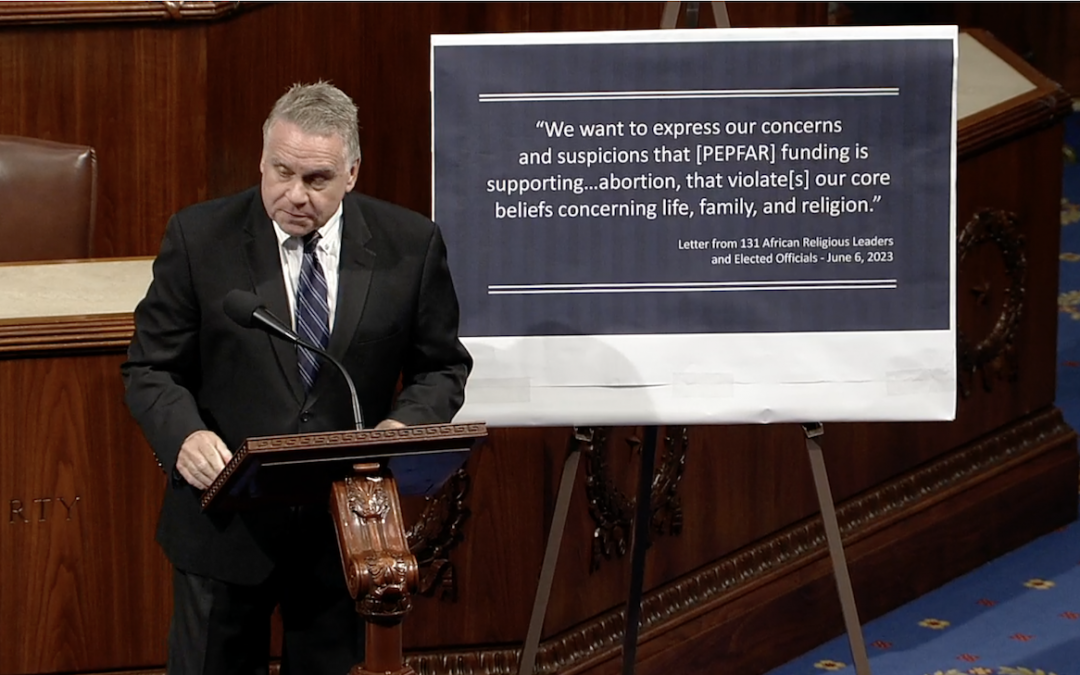WASHINGTON – Abortion opponents have complicated the reauthorization of a 2003 HIV/AIDS law that had long garnered bipartisan support.
The President’s Emergency Plan for AIDS Relief, originally signed by President George W. Bush, had been renewed three times and invested billions of dollars into the global HIV/AIDS response. However, after anti-abortion members of the House recently turned on the program, it was not renewed by a September 30 deadline.
The resistance to reauthorizing a popular and bipartisan bill without adding explicit anti-abortion clauses was indicative of the growing reach of anti-abortion attitudes in Congress.
“Regrettably, PEPFAR has been reimagined—hijacked—by the Biden Administration to empower pro-abortion international non-governmental organizations, deviating from its life-affirming work,” said Rep. Chris Smith, R-N.J., in a September 29 press release. Smith supported the program’s most recent renewal in 2018.
In a speech given on the House floor in September, Rep. Smith pointed to Biden’s decision to rescind a Reagan-era policy that prevented foreign non-governmental organizations that receive USAID funds from promoting abortion. Under the Trump administration, the policy was expanded to all executive departments and agencies, including the AIDS relief program. It was revoked in January 2021 by President Joe Biden, as it had been repeatedly by Democratic presidents over recent decades.
Ambassador John Nkengasong, the head of the AIDS Program, denied that funds had been used to give abortion a platform, “absolutely not.” He said that funds are being used in accordance with the law.
“You’re not looking for a needle in a haystack, you’re looking for something that doesn’t exist,” said Mitchell Warren, executive director of AIDS Vaccine Advocacy Coalition.
Warren blames the heated political frustration around abortion for getting in the way of reauthorization.
“This is not about HIV prevention or treatment or care. This is not about global health. This is about a political agenda that has said, ‘We want to use anything we can to reinforce an anti-abortion agenda,’” he said.
A May report from the Heritage Foundation, a conservative think tank, claimed that the Biden administration had tried to push abortion through foreign aid programs. The report said that phrases like “sexual reproductive health” were “code for abortion.”
However, State Department documents describing the program explicitly state that the program does not fund abortions.
Failing to renew the program does not kill it, or freeze its funding. However, reauthorizing it would provide more security.
“The beauty of a reauthorization is it allows you the knowledge of a five-year window around which to plan your program, to be strategic, to be thinking ahead, to be making decisions about the future,” said Warren.
The failure to renew it could cause confusion at AIDS clinics that depend on the program. It also had the potential to send a message to other countries that the United States no longer prioritizes AIDS relief.
“That would be disastrous, if people get that impression,” said Warren.
The House in September passed a one-year reauthorization with explicit abortion restrictions. That version likely will not pass in the Senate, where there is broader support for abortion, according to experts.

